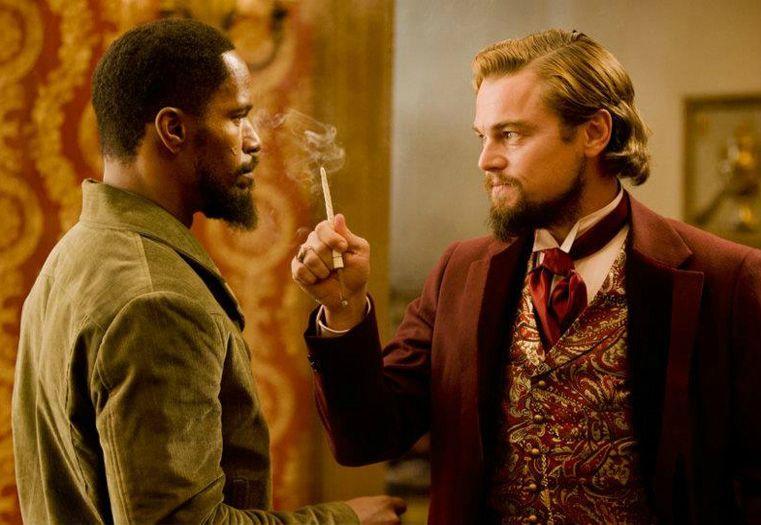Django Unchained
Jamie Foxx, Christoph Waltz, and Leonardo DiCaprio star in a film written and directed by Quentin Tarantino.

Artists with a potent and singular voice, with a solid and consistent body of work and the ability to leap across high and low culture and refined and coarse tastes within us, are bound to find their “singular” vision dispersed into the creative ether. Of course, we’re talking about Quentin Tarantino, one of America’s prime vulgarian intellectuals, whose influence is partly confirmed by such additions to the cultural vocabulary as “pulp fiction” — as in the canny mix of irony, violence, and eloquence mastered in his film of the same name — and the quality of being “Tarantino-esque,” a vibe clearly felt in several American films of the past year, including Olliver Stone’s Savages, Billy Friedkin’s Killer Joe, and the weirdly cool new Andrew Dominik offering, Killing them Softly.
But nobody rules the “Tarantino-esque” pack with the aesthetic fangs and tang of the man himself. The master is back and at least close to the top of his game with his slave’s revenge epic Django Unchained, and we recognize from stem to stern that only this masterful grit-and-wisdom auteur could have cooked up a film this strange, entertaining, and underscored with seriousness. As usual, Tarantino borrows from high and low sources to create his “singular” style. This time out, he taps into his nerdy cinephiliac brain to create a film culling from the feeling and content of Spaghetti Westerns, blaxtoitation superhero flicks, Wagnerian subplots (re: Brunnhilde and Siegfried), and parlor-talk-filled period pieces to deliver something surprisingly fresh in America: a film dealing fairly directly with slavery, that shameful period in American history whose racist ripples continue on.
While both Jamie Foxx and Leonardo DiCaprio, as the livewire vengeance-dispensing freed slave and the silver-tongued sadist of a plantation owner, respectively, seize the screen and our attentions during the film, the magnetic center of the cast is the suave yet deadly Christoph Waltz, in whom Tarantino has found an ideal vehicle for his “Taranatino-esque” schemes. Whereas Waltz was a perversely captivating Nazi monster in Inglorious Basterds, the role reverses here and he plays an accidentally heroic German-in-the-American-South bounty hunter, using his wits to help free Django’s wife from bondage as a “house slave.” As in Inglorous Basterds, Tarantino’s new film lavishes attention on the juxtaposition of articulate chatter amongst power-mongers and the inherent sadism and violence all around the witty banter. It’s a shoot-‘em-up meets talk-‘em-up as only this filmmaker seems to be able to manage.
Naturally, there will be blood in a Tarantino film, but the orgiastic bursts of choreographed bloodletting come late in the narrative, and tend to be so canny and cartoony that we are granted a reprieve of detachment from the carnage at hand. It’s only a movie — a Tarantino movie — and a damn fine one, at that.



